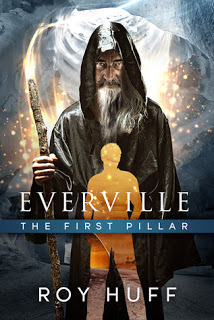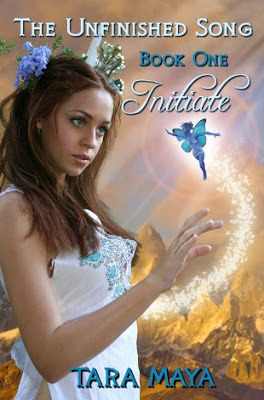Cheryl Koevoet's Blog, page 2
January 14, 2014
Book Reviews, Blogzillas & Oscar The Grouch
 As a kid, I grew up watching Sesame Street, and I have to admit that my least favorite character was always Oscar The Grouch. I just didn't understand what that little green monster had to be snarky about all the time. Especially when all those cool, friendly neighbors came around to visit him every day.
As a kid, I grew up watching Sesame Street, and I have to admit that my least favorite character was always Oscar The Grouch. I just didn't understand what that little green monster had to be snarky about all the time. Especially when all those cool, friendly neighbors came around to visit him every day.Now that I'm older, I have learned from experience that there is always at least one pessimist around, poking his head out of somewhere. With the explosion of the internet, these grouchy people are popping up more and more in unexpected places, offering their unfiltered opinions in places they're not wanted while using caffeine withdrawal as their primary excuse for their elevated level of bitchiness.
At some point in their careers, authors who have either traditionally-published or self-published their work will encounter what I like to refer to as "Blogzilla." This is a self-proclaimed book critic who does not even require a website or blog to meticulously dissect an authors work, or in some cases, completely hack it to pieces with a machete, but will instead implement popular online platforms such as Goodreads and Amazon on which to post their dirty work. However, as it would be highly uncharacteristic for Blogzilla not to have his/her own cutesy-titled blog where he/she/it can conveniently park rants at a moment's notice, most of them do have their own.
Upon closer study, one will discover that these Blogzillas are quite often wannabe authors who, after being exposed to the dog-eat-dog world of the publishing business, try to make themselves feel better about their unpublished state by stomping all over the work of others. Their take no prisoners attitude propels "snarkiness-to-strangers" to a whole new level. The technical word for this unprovoked persecution is called "trash talking." If your mother raised you correctly, you will immediately recognize this method of communication as the one that got you grounded, butt-whooped, or your phone taken away, depending on the generation in which you were raised. In addition to creating their very own rant site book review blog, Blogzillas also haunt book-sharing sites such as Goodreads and Amazon where they can broadcast their oh-so-clever condescension to a wider audience before finally publishing it to Facebook, Twitter, and all the other social media sites. These "friend-based" platforms provide Blogzilla with the added bonus of appearing to be a literary subject matter expert to their family, neighbors, colleagues, and (of course) fellow book club members.
If at this point you still don't know what I am referring to, go to Goodreads and/or Amazon and select any book with at least 50 ratings/reviews. Reviews vary widely depending on the book, author and genre, but even on the most beloved book pages of our generation (or previous generations) you are bound to find those depressing 1-star reviews. Because these book rating sites decided to create a ranking system by which one star is the lowest possible rating, the meaning behind that one star can vary between a general dislike of the book to "this-was-the-worst-book-in-the-history-of-the-planet-and-the-author-should-be-taken-out-and-shot-to-prevent-him-from-ever-writing-again."

Let's face it -- with seven billion people on the planet, you are going to have seven billion different opinions on the necessity or obscurity of just a single book. And while each individual has the right to award one-star to a book they did not enjoy reading, there is a vast difference between the average reader who just gives it the thumbs down and Blogzilla, who turns a simple book review into their own personal vendetta against the author by escalating into name-calling and "shelving" the book under a most undesirable name with the intention of scaring off potential readers. (You know the ones I'm talking about, right?)
The good news is that most people perusing these sites can see through the negative reviews and recognize them for what they are. There is a definite line that is crossed when a book review suddenly turns into a rant seemingly written by someone from the psycho ward, and the average reader can pick this out fairly well. It is at this point that Blogzilla loses all credibility and that one star rating is taken with a grain of salt. So what are we to do with these negative reviews? For any writer, author, artist, or other person whose work requires them to release their blood, sweat and tears into the public domain, professionalism dictates that these perpetrators of perpetual Oscar the Grouchism simply be ignored. Which isn't easy when the author has poured his/her heart and soul onto the page in the hopes of entertaining just a few hopeless souls in desperate need of escapism. But by not responding to or engaging with these killjoys of society, the author creates the opportunity to display a level of dignity and grace not seen since before the invention of the internet, otherwise known as "taking the high road." How refreshing. What about you? Have you ever been witness to the rants of Blogzilla? Tell me about your experiences in the comments section below.

Published on January 14, 2014 08:39
September 7, 2013
Commonly-Made Mistakes When Writing a Novel
 Part of being an author means that you read a lot of books. TONS of books, in fact. This is the only way you can truly develop your own voice and grow in your craft. By reading many different styles and deciding what you like and don’t like, you will establish your own voice that will eventually become your unique signature.
Part of being an author means that you read a lot of books. TONS of books, in fact. This is the only way you can truly develop your own voice and grow in your craft. By reading many different styles and deciding what you like and don’t like, you will establish your own voice that will eventually become your unique signature. While there is a wide range of writing styles that vary greatly from person to person, there are general rules and guidelines that need to be adhered to in order to make the story flow correctly and keep the reader’s attention.
Each time I am asked to critique another writer’s manuscript before it goes to print, I always manage to catch a number of common writing no-no’s. Unfortunately, the same frequent errors being made are also the ones that detract the most from the story. Writers opting for the self-publishing route tend to make these mistakes more for the simple reason that they usually don't have an editor and/or publisher picking out these errors.
I have compiled my short list of mistakes that I commonly find in the works of newbie writers:
POV Slip (aka 'head-hopping')This is probably the number one problem I see among new writers. (OK, I’ll admit that this was a problem of mine until something in my brain finally clicked and I actually got what I was doing wrong.) When you start writing a story, you'll first need to decide from which character's viewpoint the reader will be seeing the story, or if it will be told by a narrator.
There are three main kinds of storytelling; first person, second person, and third person. To explain them in here detail would take too much time. For a complete explanation of these varying points of view (POV), read this brief article entitled Understanding Point of View in Literature.
The biggest problem occurs when the writer skips back and forth between different characters’ points of view without so much as a scene or chapter break. This is extremely frustrating as it confuses the reader, drawing him or her out of the story. As a general rule, if you begin a scene or chapter, make sure it is written from the perspective of only one of the characters, especially if there is internal dialogue going on. Otherwise, your audience will have a tough time feeling empathy toward each individual character since they can't tell who is thinking/speaking! If you expect the reader to invest time and emotion in your characters, you need to make sure those characters are accessible. What I mean by this is that you need to put some effort into it by devoting that scene or chapter to just the one character. Many newbie writers tend to skip over things for the sake of ease, only to be told later that the reader was unable to empathize with the character. Make the reader care about what is happening to him/her/it. If the thoughts and viewpoints are constantly flipping back and forth between characters, the reader will put down the book out of sheer frustration and most likely not pick it back up again.
Use of Words Ending in ‘ly’This is something that literary agents absolutely abhor. Words like finally, suddenly, quickly, slowly, etc., need to be used sparingly. Find other ways to express the action in a scene without resorting to use of these words. This will make your manuscript stronger and not drive the reader bonkers!
Spelling, Grammar and PunctuationThese are some of the most obvious and common mistakes, and yet they still need to be pointed out. Anyone with a computer and a connection to the internet has ready access to more than a dozen spell checker programs. If you plan to release your story to the reading public, please, please, PLEASE run a spell checker more than once. You won’t always catch all the errors in one round of editing, and most novels require at least four or more. In the current climate of authors choosing the self-publishing route, spelling and punctuation errors are occurring on a more frequent basis. If there are just a few spelling errors in the book, most readers will be forgiving, especially if the story is engaging. But if a novel is riddled with punctuation mistakes and grammatical errors, there are very few readers who will stick it out until the end.
NOTE: If you are going to name-drop, make sure you spell the name correctly! (i.e. Dolce & Gabbana instead of Dulce and Gabana.) Misspelling common brands or names will make you look unprofessional and will leave the reader with the impression that you don’t know your own subject matter. In short, don’t let bad punctuation and spelling errors ruin a good story!!
Overuse of Dialogue TagsThese are the ‘he said,’ ‘she said’s of the story. Use them as little as possible, when the reader would not otherwise be able to determine who is speaking. If your characters have established their own voices during the story, many of these dialogue tags will not even be necessary. Can't tell if you need them or not? Have someone else read the story and see if they can tell who the speaker is.
Telling When You Should Be ShowingThe mantra of many authors I know is ‘Show, don’t tell.’ I disagree only slightly with this, because there does need to be a small amount of ‘telling’ which often occurs in your prose. I prefer to say 'show MORE than you tell.' But a major mistake that nearly all writers make in the beginning is to tell the reader what happens instead of showing how it happens. With a passive voice, the story basically flows like this: He went there and did this, and came back and did this. After that, he felt like this and then he did that. Of course, that is exaggerated, but you get the picture. In reality, the story should show the reader what the character is doing, thinking, feeling, or saying through the character's own actions and not simply narrating from a stand-offish point of view. Showing the reader how the story unfolds can usually be accomplished by using an active voice instead of implementing a passive voice.
Example of a passive voice (‘telling’):
Anna Richards was going to the store to pick up some groceries before it closed. She didn’t make it on time, and when she got there, Old Man Peabody was locking the door. She got mad when he saw her but he just turned around and went back into his store.Example of an active voice (‘showing’):
Anna Richards hopped in the car and raced to the Shoppette to grab her favorite yogurt before the store closed for the long, holiday weekend. Slamming the car door, she dropped her keys into a muddy pothole. With a frustrated groan, she picked them up and wiped the dirt off with her hoodie.
She jogged up to the glass doors, reaching them just as Old Man Peabody turned the key in the lock. She glanced down at her watch. There was still five minutes left until closing time! Old Man Peabody gave her a smug grin and shuffled back up the candy aisle.
Banging angrily on the glass, she cursed at him, shouting loudly so that everyone in the neighborhood could hear what a jerk Old Man Peabody really was.
Not Having Your Book Proofread and/or Professionally EditedThis is a shortcut that many writers take, and one that always makes me scratch my head. Yes, to have a professional editor pick apart your story can be very costly. But if you have the extra money, it is well worth every penny. If you can’t afford a professional editor, then at least enlist the help of a beta reader. These are people who, out of the goodness of their own hearts, will give you an invaluable second set of eyes and help catch errors and plot holes you may have missed along the way. If you don’t know anyone willing to read your story and correct mistakes, join a local critique club or get involved in an online writers' forum. Most beta readers enjoy reading new stories and thrive on making a good story even better. Whether or not your book has been scoured by others can make the difference between landing an agent or publisher and getting a steady stream of rejection letters. Don't be one of the many authors who impatiently rushes his or her manuscript to print before it's ready. If a story is worth being written, it’s worth being edited!! I have listed only a couple of the many frequently-made mistakes. Of course there are many more. What is your most common writing mistake? Share in the comments below.

Published on September 07, 2013 03:18
August 25, 2013
Free Fantasy Book Giveaway: Everville: The First Pillar
Today I'm helping author buddy Roy Huff get the word out on his fantastic promotional deal for the second book in the Everville series: Everville: City of Worms. More about how you can get the first book, Everville: The First Pillar FREE for a limited time. But first, here is the blurb on the back of his brand new book:
And here is the stunning new cover design:
 Everville: City of Worms And until September 3rd, you can get The City of Worms for only $3.62 by clicking on the link above. It's that simple!! And if you haven't read book one of this fantasy trilogy, it is available FREE for only a few days through August 29th! Here is the blurb for book one, Everville: The First Pillar:
Everville: City of Worms And until September 3rd, you can get The City of Worms for only $3.62 by clicking on the link above. It's that simple!! And if you haven't read book one of this fantasy trilogy, it is available FREE for only a few days through August 29th! Here is the blurb for book one, Everville: The First Pillar:  To download your free copy during this limited time offer, just go to Amazon. Don't forget to add both books to your Goodreads shelf and thanks for your continued support of indie author Roy Huff!
To download your free copy during this limited time offer, just go to Amazon. Don't forget to add both books to your Goodreads shelf and thanks for your continued support of indie author Roy Huff!
College freshman Owen Sage has just started to understand the darkness trying to overtake Everville and the earthly realm. With the help of The Keeper and the Fron army, Owen has managed to buy some time, but new problems have already emerged, new secrets need to be revealed, and the race against time to stop Them from conquering both dimensions has only just begun. The Keeper, Owen Sage, and his friends at Easton Falls University must now battle threats from within. To do it, they must reunite with familiar creatures and join forces with new ones as they navigate their journey to the truth that awaits them in Everville.
And here is the stunning new cover design:
 Everville: City of Worms And until September 3rd, you can get The City of Worms for only $3.62 by clicking on the link above. It's that simple!! And if you haven't read book one of this fantasy trilogy, it is available FREE for only a few days through August 29th! Here is the blurb for book one, Everville: The First Pillar:
Everville: City of Worms And until September 3rd, you can get The City of Worms for only $3.62 by clicking on the link above. It's that simple!! And if you haven't read book one of this fantasy trilogy, it is available FREE for only a few days through August 29th! Here is the blurb for book one, Everville: The First Pillar: Owen Sage is the emblematic college freshman at Easton Falls University. With all the worries about his first year in college, he was not prepared for what would happen next. His way of life was flipped upside down when he mysteriously crossed into another dimension, into the beautiful land of Everville.
His excitement was abruptly halted when he discovered that there was a darkness forged against both the natural world, which he knew well, and the new land which he discovered, Everville. He must devise a plan to save both worlds while joining forces with the race of Fron and The Keepers, whom both harbor hidden secrets he must learn in order to gain power over the evil that dwells in The Other In Between.
 To download your free copy during this limited time offer, just go to Amazon. Don't forget to add both books to your Goodreads shelf and thanks for your continued support of indie author Roy Huff!
To download your free copy during this limited time offer, just go to Amazon. Don't forget to add both books to your Goodreads shelf and thanks for your continued support of indie author Roy Huff!
Published on August 25, 2013 08:17
August 14, 2013
FREE Tara Maya eBook Giveaway
 Today I have the extreme pleasure of hosting science fiction & fantasy author, Tara Maya who is best known for her Unfinished Song series.
Today I have the extreme pleasure of hosting science fiction & fantasy author, Tara Maya who is best known for her Unfinished Song series.The Unfinished Song is an epic faery tale... epic fantasy rewoven from fairytales, set in Faearth, a primeval world of magic where Faeries still rove the world. It is one story, split into twelve novels.
And right here through my blog, you can get a free copy of Initiate , the first book in the series.
But first, here is a short description:
DEADLY INITIATION
A DETERMINED GIRL...
Dindi can't do anything right, maybe because she spends more time dancing with pixies than doing her chores. Her clan hopes to marry her off and settle her down, but she dreams of becoming a Tavaedi, one of the powerful warrior-dancers whose secret magics are revealed only to those who pass a mysterious Test during the Initiation ceremony. The problem? No-one in Dindi's clan has ever passed the Test. Her grandmother died trying. But Dindi has a plan.
AN EXILED WARRIOR...
Kavio is the most powerful warrior-dancer in Faearth, but when he is exiled from the tribehold for a crime he didn't commit, he decides to shed his old life. If roving cannibals and hexers don't kill him first, this is his chance to escape the shadow of his father's wars and his mother's curse. But when he rescues a young Initiate girl, he finds himself drawn into as deadly a plot as any he left behind. He must decide whether to walk away or fight for her... assuming she would even accept the help of an exile.
Sounds cool, huh? Well, below you can also read a short excerpt:
Blue-skinned rusalki grappled Dindi under the churning surface of the river. She could feel their claws dig into her arms. Their riverweed-like hair entangled her legs when she tried to kick back to the surface. She only managed to gulp a few breaths of air before they pulled her under again.
She hadn't appreciated how fast and deep the river was. On her second gasp for air, she saw that the current was already dragging her out of sight of the screaming girls on the bank. A whirlpool of froth and fae roiled between two large rocks in the middle of the river. The rusalka and her sisters tugged Dindi toward it. Other water fae joined the rusalki. Long snouted pookas, turtle-like kappas and hairy-armed gwyllions all swam around her, leading her to the whirlpool, where even more fae swirled in the whitewater.
"Join our circle, Dindi!" the fae voices gurgled under the water. "Dance with us forever!"
"No!" She kicked and swam and stole another gasp for air before they snagged her again. There were so many of them now, all pulling her down, all singing to the tune of the rushing river. She tried to shout, "Dispel!" but swallowed water instead. Her head hit a rock, disorienting her. She sank, this time sure she wouldn't be coming up again.
"Dispel!" It was a man's voice.
Strong arms encircled her and lifted her until her arms and head broke the surface. Her rescuer swam with her toward the shore. He overpowered the current, he shrugged aside the hands of the water faeries stroking his hair and arms. When he reached the shallows, he scooped Dindi into his arms and carried her the rest of the way to the grassy bank. He set her down gently.
She coughed out some water while he supported her back.
"Better?" he asked.
She nodded. He was young--only a few years older than she. The aura of confidence and competence he radiated made him seem older. Without knowing quite why, she was certain he was a Tavaedi.
"Good." He had a gorgeous smile. A wisp of his dark bangs dangled over one eye. He brushed his dripping hair back over his head.
Dindi's hand touched skin--he was not wearing any shirt. Both of them were sopping wet. On him, that meant trickles of water coursed over a bedrock of muscle. As for her, the thin white wrap clung transparently to her body like a wet leaf. She blushed.
"It might have been easier to swim if you had let go of that," he teased. He touched her hand, which was closed around something. "What were you holding onto so tightly that it mattered more than drowning?"
If you would like to read more about Tara and the Unfinished song series, you can visit her blog.
You can also follow Tara Maya on Twitter or The Unfinished Song on Facebook
Last but not least, here are the super links for free and/or next-to-nothing downloads: Free eBook for Kindle on Amazon Only $0.99 on Barnes and Noble Free eBook for Kobo Books Free eBook from iTunes Bookstore Free eBook on Smashwords
Don't forget to share this special offer with all your friends!!

Published on August 14, 2013 11:05



